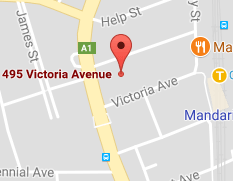The Federal Budget has been delivered and has focused on infrastructure and essential services spending as well as income tax relief for low and middle income earners and business tax relief. Unsurprisingly (on the eve of a federal election), the budget is a somewhat safe and uneventful one, and rather than containing any major changes to the current tax base, has focused on minor tweaks and changes to what we already have.
As with all Budgets, these are announcements only and have not been legislated. The details are still to be worked through, and both Houses of Parliament need to pass legislation before the announcements take effect. Parliament won’t consider these announcements until after the Federal election, expected in May this year, so more than normal, the passage from announcement to legislation is uncertain.
The key tax (personal and business related) and superannuation highlights of last night’s Budget are summarised below:-
1. Personal income tax measures
Last night the Government announced that it will amend various elements of its legislated personal income tax plan, by introducing the following changes:
-
Immediate tax relief for low and middle income earners
-$1,080 for single earners
The Low and Middle Income Tax Offset (“LMITO”) has been increased up to:
-$2,160 for dual income familiesThese increased tax offsets apply immediately and will be available to eligible taxpayers when lodging their 2019 income tax returns. Taxpayers with incomes below $48,000 will be eligible for an offset of between $255 and $1,080. The full tax offset is available to taxpayers with a taxable income between $48,000 and $90,000.
- Make further structural changes to the personal income tax brackets as set out below:
|
Rate |
2018-19 to 2020-21 |
2022-23 to 2023-24 |
2024-25 onwards |
|---|---|---|---|
|
0% |
$0-$18,200 |
$0-$18,200 |
$0-$18,200 |
|
19% |
$18,201-$37,000 |
$18,201-$45,000 |
$18,201-$45,000 |
|
30% |
- |
- |
$45,001-$200,000 |
|
32.5% |
$37,001-$90,000 |
$45,001-$120,000 |
- |
|
37% |
$90,001-$180,000 |
$120,001-$180,000 |
- |
|
45% |
$180,001+ |
$180,001+ |
$200,001+ |
- Our comment is that 2025 is a long time away, and a lot can and will change between now and then, including 6 years worth of inflation!
2. Medicare Levy related measures
The Government has announced that the Medicare Levy will not be increasing to 2.5% and will remain at 2%.
It is however proposing to increase the threshold at which point the medicare levy becomes payable as follows:
- For singles, the threshold will be increased from $21,980 to $22,398
- For families, the threshold will increase from $37,089 to $37,794.
3. Business related tax measures
The major initiative impacting businesses in Australia from this budget is undoubtedly the further expansion of the instant asset write off allowances from $20,000 per asset up to $30,000 per asset.
In the past these concessions were limited to only small businesses with a turnover of less than $10million, these measures will now also apply to any business with an aggregated annual turnover of less than $50 million.
Small businesses (turnover less than $10m) will be able to write off eligible asset purchases acquired before the budget but installed ready to use after budget night. Larger businesses (up to $50million turnover) will only be able to apply the instant write off concessions for assets purchased after budget night.
4. Superannuation related measures
In addition to the already announced initiative to allow Self-Managed Super Funds to have up to six members (up from the current maximum of 4) from 1 July 2019 the Government has proposed the following measures:
- Changes to the “work test” requirement. At the moment people aged 65 and over need to satisfy a work test to be able to make voluntary contributions to their super fund. The budget proposal (commencing from 1 July 2020) will allow members aged 65 and 66 to make contributions without having to pass a work test. This change will align the work test with the eligibility age for the Aged Pension, which is scheduled to increase to 67 from 1 July 2023.
- In addition and subject to their total superannuation balances, those 65 and 66 year olds will be able to make up to three years worth of non-concessional contributions under the bring forward rule.
- Superannuation fund members up to and including age 74 will now be able to receive spouse contributions.
All of the above superannuation proposals can actually be implemented without the budget being passed by both houses of Parliament, as changes to these aspects of superannuation can be made by amending the applicable regulations only.
Full Budget Report
For further details in respect of the content of the Federal Budget we refer you to the below paper issued by Thomson Reuters.
Click here to download the Thomson Reuters 2019 Federal Budget Paper.



